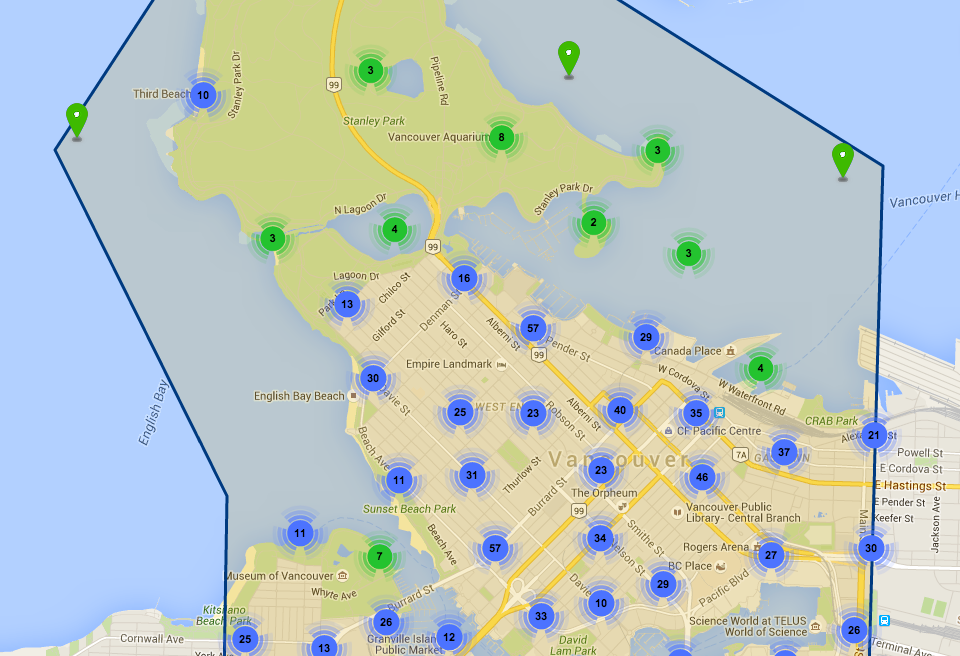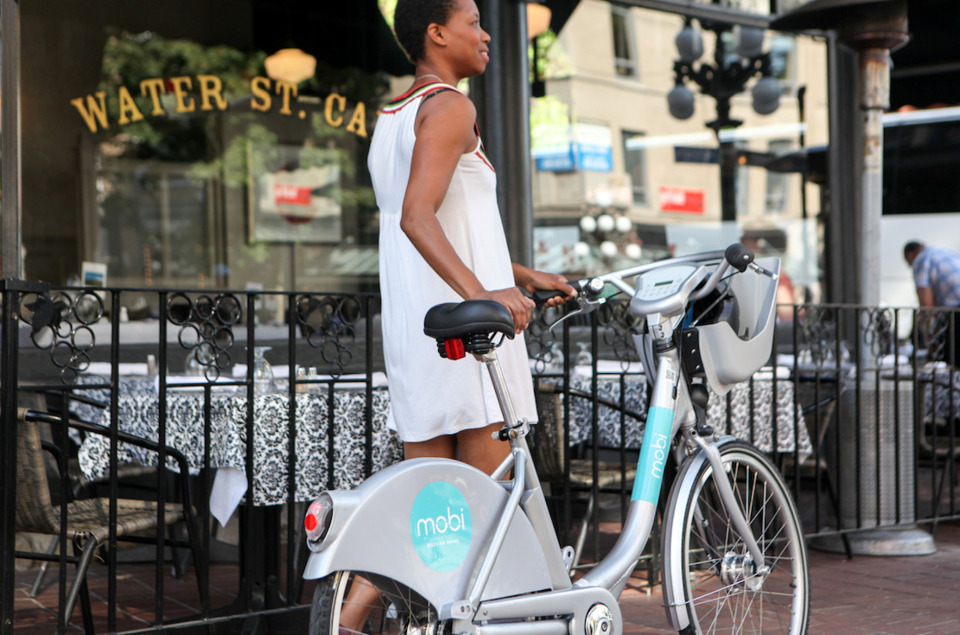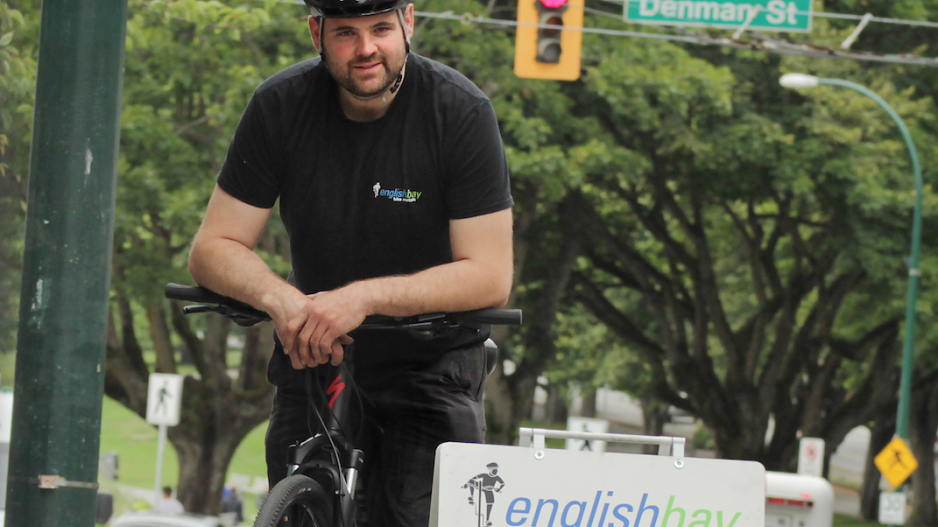Bike-rental store owners are bracing for a city-subsidized bike-share program they fear will shift sales into low gear.
“I’m sure the bike-share program will cut into business,” English Bay Bike Rentals owner Joe Kainer told Business in Vancouver.
Kainer has spoken at several city council and park board meetings in the four or so years since the city started considering bike-share options.
“It’s been a long process, but I don’t think they’re giving us any consideration at all,” he said. “They’re just going to do what they want to do.”
The City of Vancouver pumped $5 million into capital costs to get the bike-share program started. It also contributed $1 million into various other startup costs and will finance the bike-share program to the tune of $500,000 per year in each of the first five years, said Jerry Dobrovolny, the city’s general manager for engineering.
The city chose California-based CycleHop to run the program. Its Vancouver subsidiary, Vancouver Bike Share Inc. (VBS), plans to have 1,500 Mobi-branded bikes on city streets by the end of the summer.
Bikes began arriving last week.
The private company will start building the first of 150 hubs, or docking stations, within days and expects to have dozens of those hubs operating by the end of July, general manager Mia Kohout told BIV.
Exact locations of the docking stations are still being determined, but many will be where there are currently metered parking spots.

(Image: Vancouver Bike Share's website shows a map of proposed docking stations for its bikes | Vancouver Bike Share)
VBS has agreed to compensate the city up to $400,000 per year in lost parking revenue from those meters, even though Dobrovolny said that lost parking revenue could total up to $800,000 annually.
Kohout said VBS will try to keep docking stations away from the entrances to bike-rental companies but added that, by the end of the rollout, the docking stations will be only a few blocks away from each other.
Preliminary docking station locations show one just metres away from Kainer’s bike store near the corner of Davie and Denman streets.
The first 150 stations will all be in an area bounded by the downtown peninsula, Arbutus Street, Main Street and 16th Avenue.
“We’re working on our pricing so we’re not competing with bike-rental shops,” Kohout said.
She declined to reveal how much her company will charge for day passes but said that tourists and others who want to use a Mobi bike for a few hours will have to buy a pass that costs more than a bike-rental store would charge for a few hours.
About 80% of VBS’ revenue is expected to come from local residents who buy monthly or annual memberships.
Introductory pricing for unlimited rides
Kohout said VBS has already sold hundreds of annual memberships that are good until July 31, 2017. The introductory rate for those memberships, which allow unlimited 30-minute bike rides, is $99 until July 31.
Members get key fobs to activate bikes or they can punch pass codes into small waterproof computers attached to each bike. That unlocks the bike and allows the user to access a basket that will contain a helmet. Helmets can otherwise be attached to the bike via a long wire.
Hairnets will be available at the docking stations for those concerned about hygiene.

(Image: This similation shows someone enjoying a Vancouver Bike Share bike in Gastown | Vancouver Bike Share)
Riders who have their own helmets can lock the VBS helmet to the docking station to make extra space in the basket, Kohout said.
The cyclist could then return the bike to a different docking station – even though it would be missing a helmet – because extra helmets are expected to be locked at docking stations, Kohout said.
Mobi bikes come with locks that could be used to temporarily lock the bike to a city bike rack.
Charges will rack up if users with basic memberships don’t return bikes to docking stations within 30 minutes. Once they have returned the bike, however, they can wait five minutes and then take the same bike out for an additional 30-minute ride.
Annual memberships for those who want to have unlimited 60-minute rides are $129.
“This is a different business model, a different business from the bike-rental businesses,” Dobrovolny stressed. “There are over 1,000 cities in the world that have bike-share systems, and we’re late in the game here because we were very risk-averse.”
According to city statistics, Vancouver bike ridership has increased more than 30% in the past year to more than 130,000 rides per day during the summer. •




